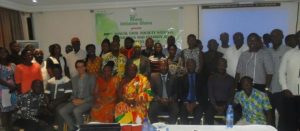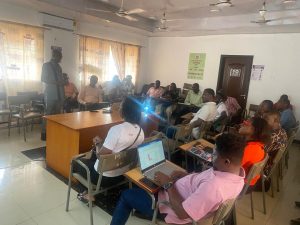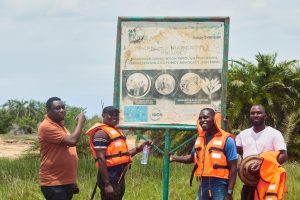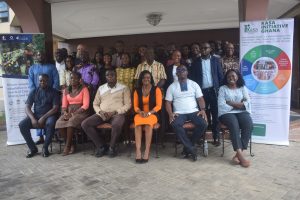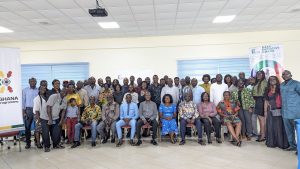On the 4th of October 2016, Kasa initiative Ghana, a non-governmental organization (NGO) which is aimed at enhancing the capacity of civil society and media organizations for concerted and evidence based advocacy, organized its 7th annual civil society review of the natural resources and the environmental sector.
The review came off at the Ampomaah Tourist Hotel located at East Legon, Accra Ghana.
Speaking at the review Mrs. Hannah Owusu-Koranteng the chair-person for Kasa initiative Ghana, observed that if Ghana was to take advantage of its rich natural resources, the country could have been far better off than the current state.
“Ghana could be described as a land so endowed with natural resources to be self-sufficient if we are able to harness our resources to our advantage”
She further stated that Ghana is now taken over by uncontrolled mining, fishing destruction of water-bodies huge sanitation problems.
These problems all amount to the effect of bad natural resource management which has been translated into poverty and problems being visited on the citizenry,” she pointed out.
She blamed policy makers and Ghanaians at large, on our lackadaisical behavior describing our attitude towards our natural resources as “free-for-all”.
“Our free-for-all attitude towards our natural resources exploitation has opened up the extractive sector, especially the mining for massive destruction by citizens and foreigners, the policy makers have also been responsible for the absence of environmental consideration in the policies”
As citizens, we should be aware that we own the resources and that we have responsibility towards posterity. we have been honoured with the use of the resources today but as good stewards we should demand accountability from duty bearers and policy makers” the concerned environmentalist emphasized.
Source: asempanews.com

